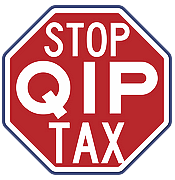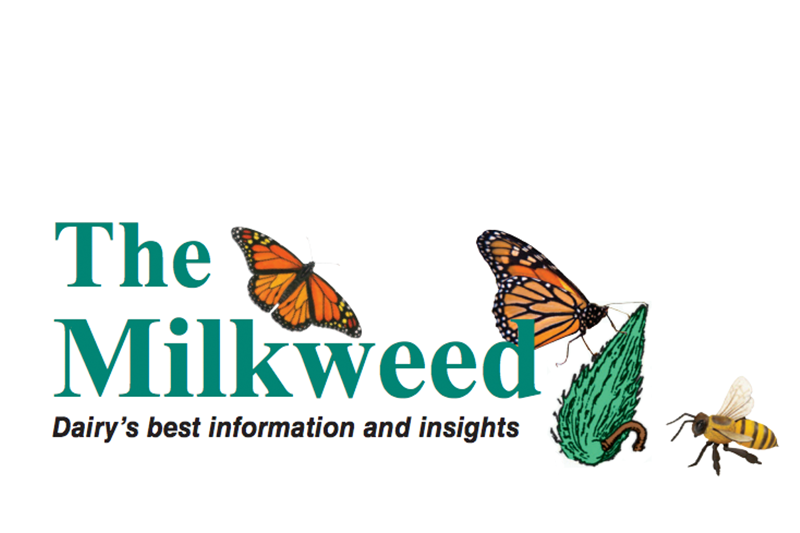by Pete Harding
Orginally printed in the January 2025 issue of The Milkweed – Issue No. 544
If the devastation from avian influenza hammering California’s milk industry wasn’t a big enough issue, dairy producers in the Golden State are now split over a bedrock financial issue: proposals to alter, or even terminate the Quota Implementation Plan (QIP).
QIP is administered by the California Department of Food and Agriculture. QIP dates back to the 1960s. QIP Quota is funded by a deduction of approximately 38 cents per cwt., assessed against all California Grade A dairy producers’ milk proceeds. Dairy producers who own Quota currently receive a Quota premium per hundredweight. Pay-outs to Quota holders vary, based upon their location. Grade A producers in Southern California receive $1.70/cwt. Producers located north of Bakersfield receive $1.40 per cwt. Around 390 producers own Quota, and around 90 of those Quota holders do not own enough Quota to offset the fees they pay. 397 producers own zero Quota.
Over the decades, California dairy producers holdings of Quota have attained $1 billion in value. But today Quota is worth around $350 million. Quota is bought and sold. It has been commonly used as a soft asset when valuing dairy farming operations. Quota serves as collateralized soft asset for securing some loans.
But changes to California’s quota program may be in the winds.
Effective January 9, the California Department of Food and Agriculture will conclude receiving ballots in a referendum for which all 787 Grade A producers in the state are eligible to vote. That referendum, sparked by Frank Konyn, who dairies near San Diego, proposes reducing the payout to quota holders to $1.09 per cwt. The deduct from a Grade A milk would be reduced to 19-20 cents per cwt. if that just concluded referendum is passed by a vote of producers. Problem: A source reports complaints by numerous dairy producers that they never received a ballot in the mail for that referendum. Critics of CDFA scorn the department’s refusal for an advance review of eligible dairy producers, prior to sending out referendum ballots.
Regardless of the outcome of that just concluded referendum – whether to reduce the current deduct and payout … or maintain status quo – other challenges to the QIP system are present.
Time-wise, the next challenge comes on January 16, in California Superior Court in Sacramento. That Court will hear a legal challenge by Craig Gordon – a Southern California dairy producer and hay dealer. Gordon will have his day in court to plead the argument that the QIP assessment taken from all Grade A producers is a “taking” without just compensation – illegal under the California Constitution. The case is listed as Craig Gordon vs. Karen Ross, Secretary of the California Department of Food and Agriculture. Gordon has worked for several years on various efforts to take down QIP through a group called “Stop QIP.”
If Gordon does not prevail in court in mid-January, plans are to proceed with another referendum overseen by the CDFA. That referendum – for which a required number of signatures collected by the Stop QIP group have already been submitted to and accepted by the CDFA, and was approved by the Producer Review Board, seeks to abolish QIP.
By any measure, these are financially tough times for many California dairy operators. Avian influenza has infected over 80% of all dairy herds in the state. The bird flu has bled cash flow and boosted costs. Milk production is down, veterinary and feed expenses are up. Recent months are seeing commodity prices pull down farm milk prices. California is losing a dairy operation every week. In the last six years, California has lost over 550 dairies – about 40% of its producers. Tight milk cash-flows make it tougher to deal with increasingly restrictive state environmental rules … without even mention of bird flu.
Producers on both sides of the QIP divide argue forcefully about “taking.” Dairy producers with little or no Quota holdings argue that the deduction to fund the program is an involuntary “taking” from their milk income proceeds. Conversely, Quota holders argue that they have paid for Quota, they own it, and to have an administrative process deprive them of that asset would be a “taking.” Emotions are heavily stoked on both sides of this issue.
Read more from The Milkweed by visiting www.themilkweed.com


